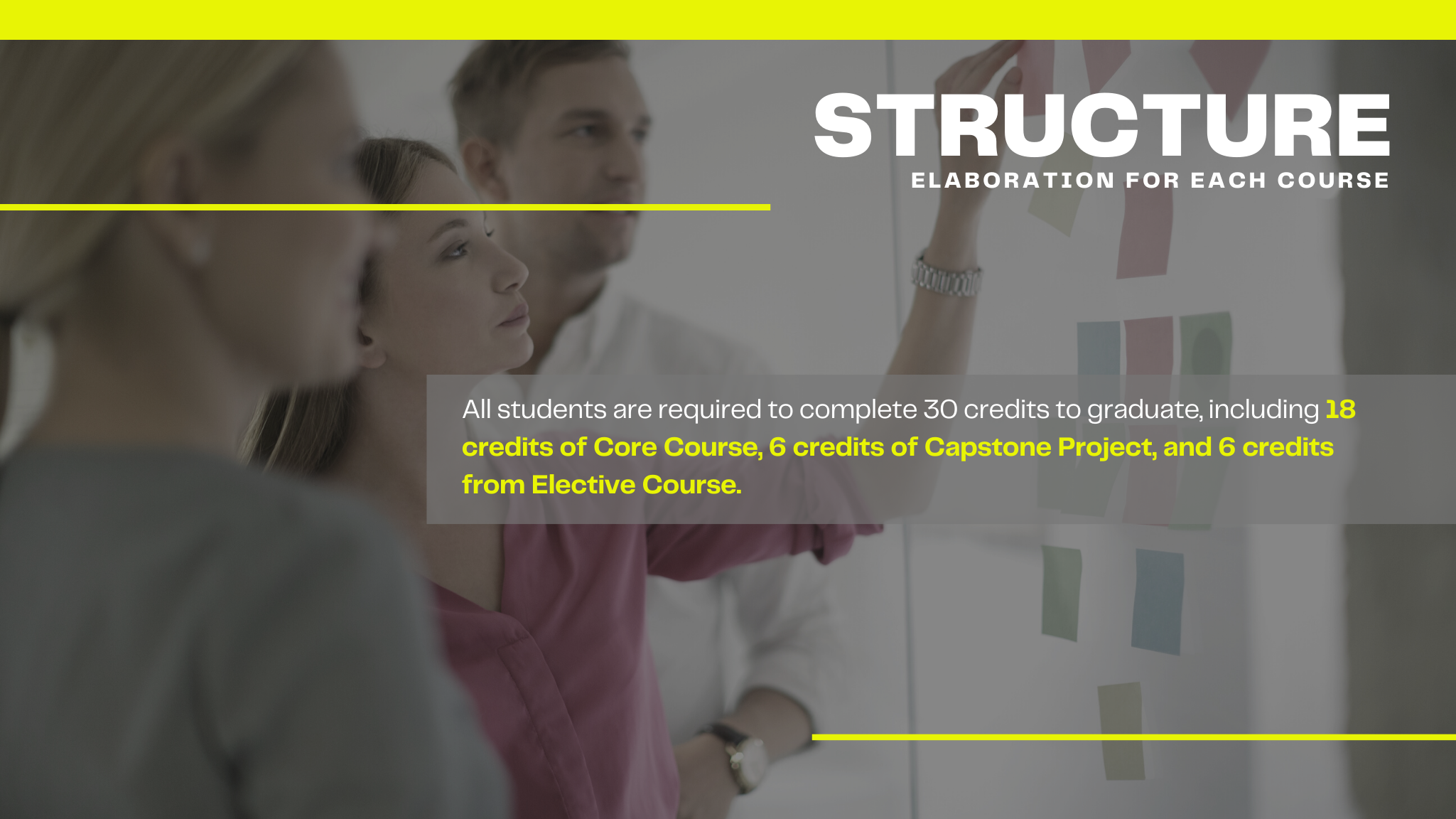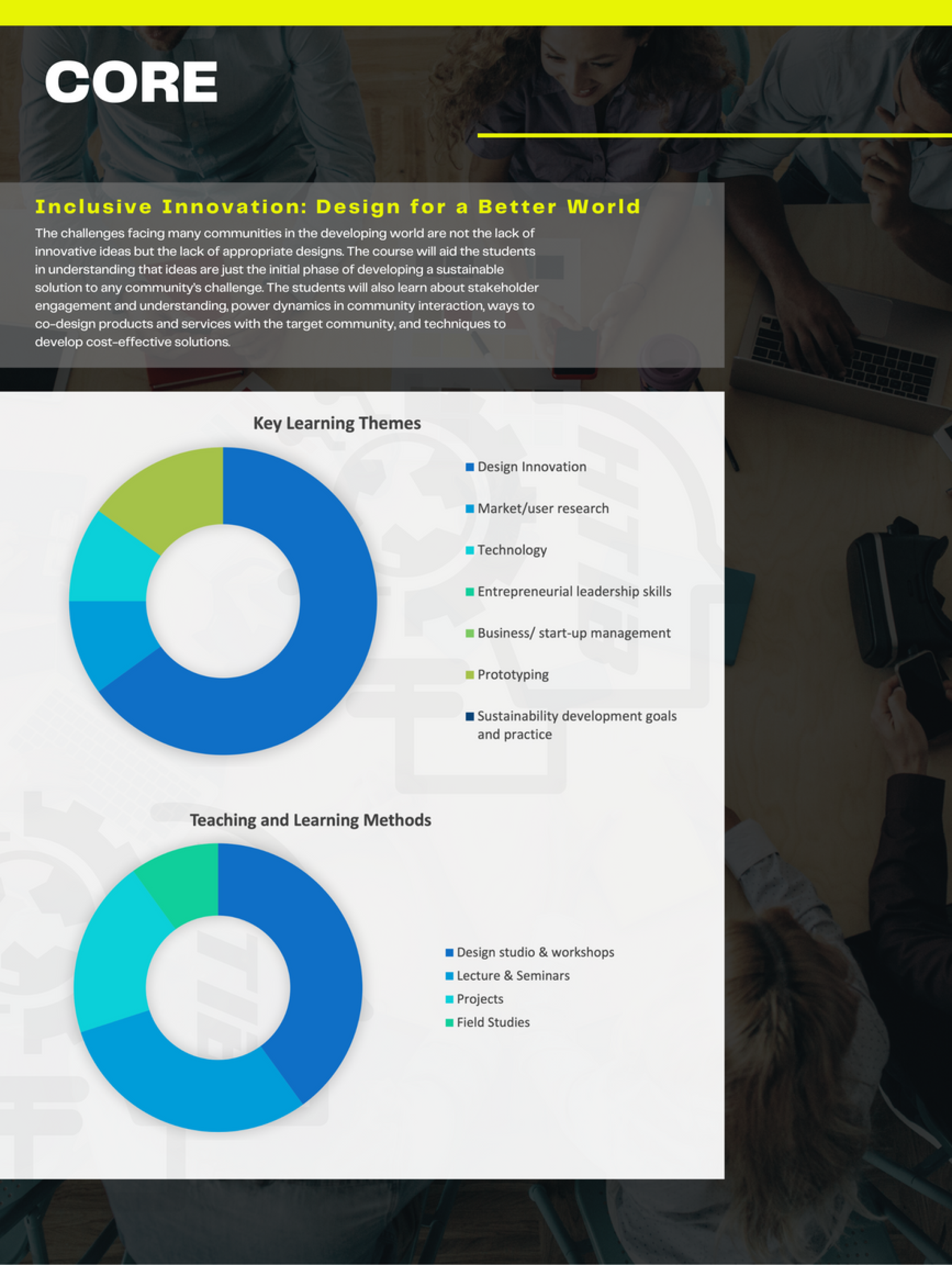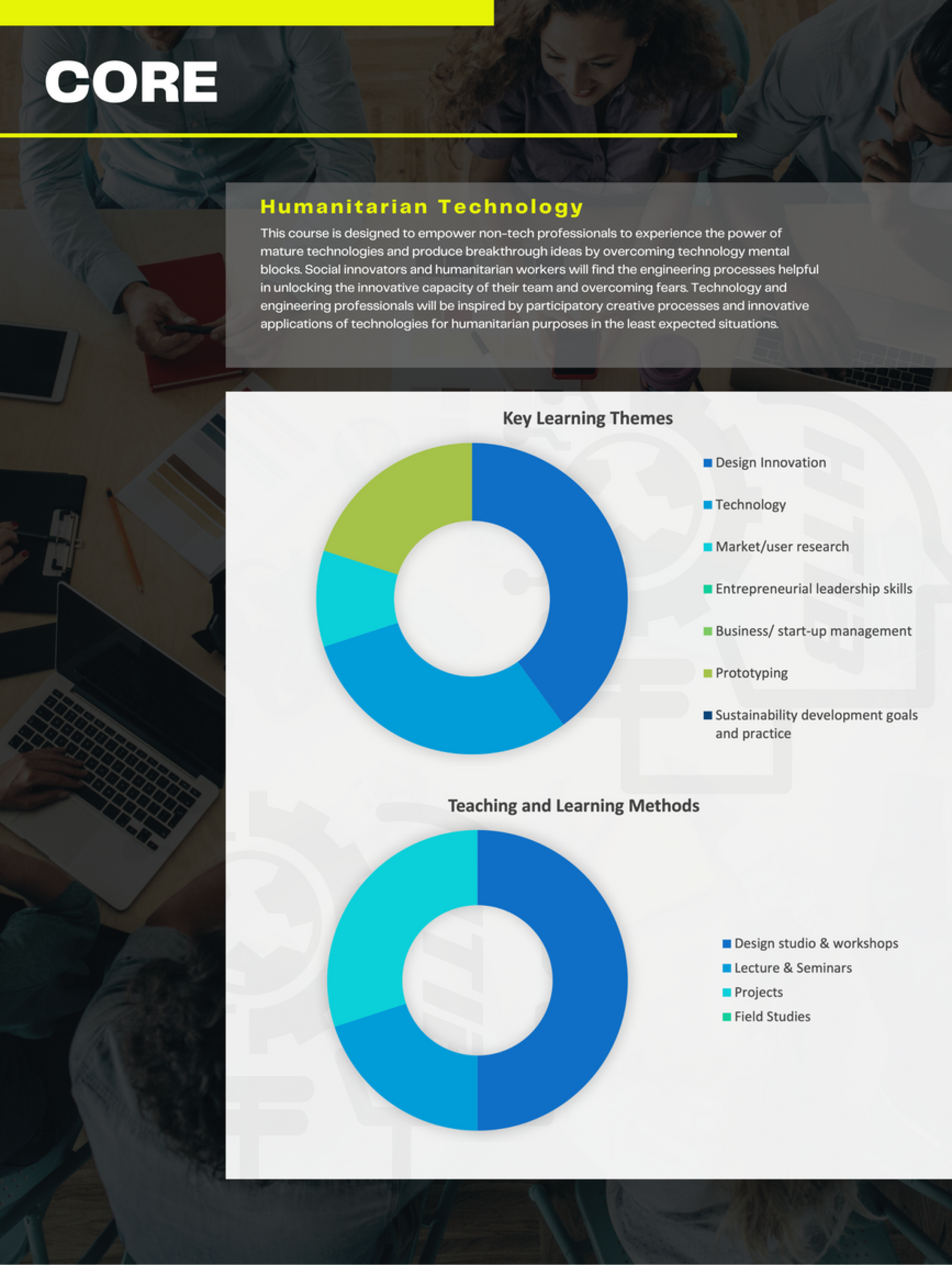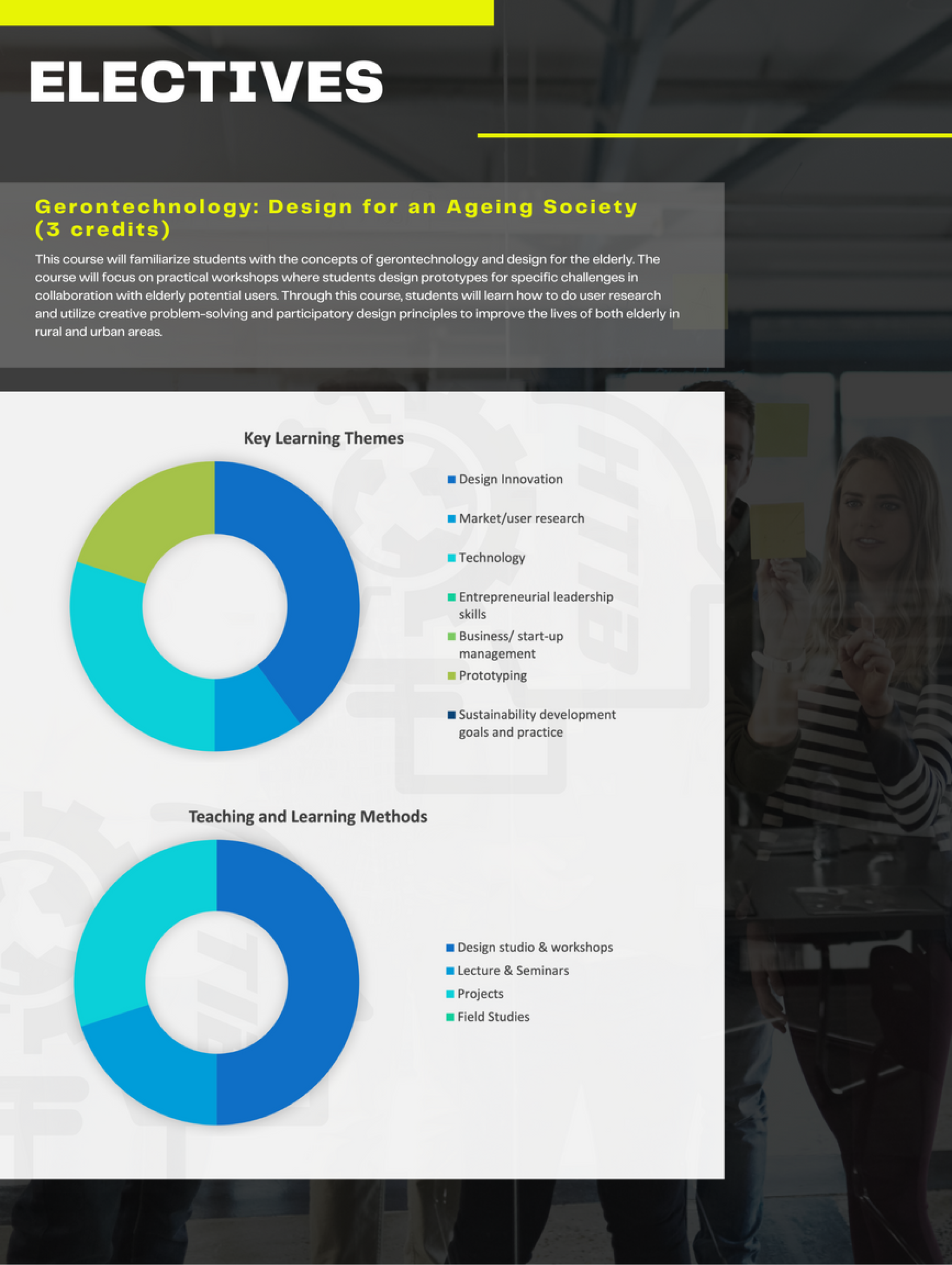Programme Overview













Text Info
Structure
All students are required to complete 30 credits to graduate, including 18 credits of Core Courses, 6 credits of Capstone Project, and 6 credits from Elective Courses.
Core
- Inclusive Innovation: Design for a Better World
- The challenges facing many communities in the developing world are not the lack of innovative ideas but the lack of appropriate designs. The course will aid the students in understanding that ideas are just the initial phase of developing a sustainable solution to any community’s challenge. The students will also learn about stakeholder engagement and understanding, power dynamics in community interaction, ways to co-design products and services with the target community, and techniques to develop cost-effective solutions.
- Humanitarian Technology
- This course is designed to empower non-tech professionals to experience the power of mature technologies and produce breakthrough ideas by overcoming technology mental blocks. Social innovators and humanitarian workers will find the engineering processes helpful in unlocking the innovative capacity of their team and overcoming fears. Technology and engineering professionals will be inspired by participatory creative processes and innovative applications of technologies for humanitarian purposes in the least expected situations.
- Humanitarian Relief and Emergency Management
- This course will introduce the management and coordination of humanitarian action and emergency response through case studies, roleplay, exercises, guest talks from practitioners (Red Cross, Doctors without Borders, etc.), and field visits. Students will learn about international standards regarding humanitarian relief and emergency management and more about specific contexts in the developing world.
- Rural Food-Energy-Water Systems (FEWS)
- Understanding how three critical factors to the viability of the human species, namely Food, Energy, and Water, affect each other is essential to solving challenges in the 21st century. The course will explore the link between the Food, Energy, and Water systems (FEWs). The course will explore the validity of data used globally and encourage students to embrace their complexities. This will lay the foundation for the students to build enough knowledge to analyse available data for any given community or ecosystem with an appreciation of the scale and context of each of them.
- Inclusive Entrepreneurship: – Scaling-up in Developing Markets (3 credits)
- This course shall critically examine the commercial viability of these new products and services in emerging markets to ensure that Base of Pyramid (BoP) communities benefit consumers and producers of these new offerings. It will also investigate strategies to drive innovation and solutions relevant to the BoP communities while building markets, strengthening supply chains, and enhancing long-term competitiveness.
- Out of the four electives offered, students must take 2 courses, accounting for 6 credits.
Electives
- Innovation Management
- This course teaches students to review innovative methods and processes and apply them to address challenges related to innovation management within the business, public, and private sectors. These innovative methods and approaches include organisational structure, meeting procedures, idea generation practices, etc., with students gaining knowledge, skills, and attitudes related to these innovative methods and processes and applying them in the context of case studies and practical exercises. The course teaches students to promote and implement innovative methods within organisations through effective communication.
- Entrepreneurial Leadership for Social Startups (3 credits)
- The course explores the complex leadership in the social entrepreneurship landscape by taking a pragmatic look at three questions. Why are great entrepreneurial leaders financially and socially effective? What differentiates good managers from great leaders? How can one become an effective leader, and how to nurture future leaders in social innovation? To help students develop compelling answers, the course will be delivered in three modules: Emotional intelligence and leadership for social changes, Practical tools for entrepreneurial leadership, and Navigating Ambiguity in social innovation with Case studies.
- Introduction to Environmental, Social and Governance (ESG) Planning (3 credits)
- This course provides an overview of the global trend in Environmental, Social and Governance (ESG) reporting and sustainability performance in commercial sectors under the UN Sustainable Development Goals (UN SDGs) framework. The course comprises a series of 3-hour seminars and discussion sessions, as well as field trips. Guest speakers and industrial practitioners of related fields, such as ESG partners, sustainability managers, and risk advisory will be invited to share ESG trends and practices. Small group field trips will also be arranged. Other learning activities include case studies, media reviews and data analyses.
- Gerontechnology: Design for an Ageing Society (3 credits)
- This course will familiarize students with the concepts of gerontechnology and design for the elderly. The course will focus on practical workshops where students design prototypes for specific challenges in collaboration with elderly potential users. Through this course, students will learn how to do user research and utilize creative problem-solving and participatory design principles to improve the lives of both elderly in rural and urban areas.
Capstone
- Design Innovation for Humanitarian Action (6 credits)
- In this capstone course, students will do a supervised individual project that focuses on 1. an action research project in collaboration with an NGO community partner; 2. a grant proposal for a social innovation project; or 3. a more developed humanitarian technology prototype that aims to address a specific challenge related to underserved populations. This course will prepare them for their future career in humanitarian technology/NGO management, social innovation, and/or academia.
Lingnan University, HTIB, MSc in Humanitarian Technology and Inclusive Business (HTIB)


